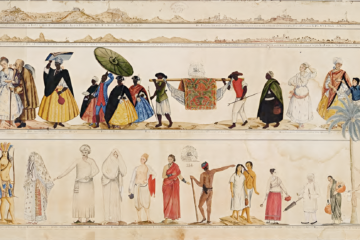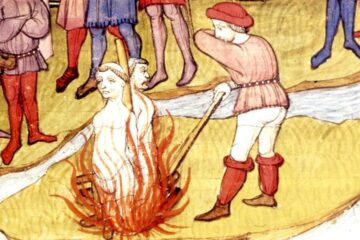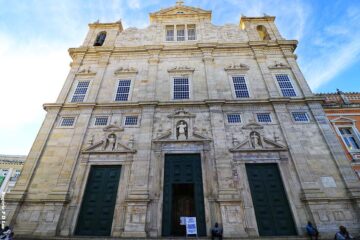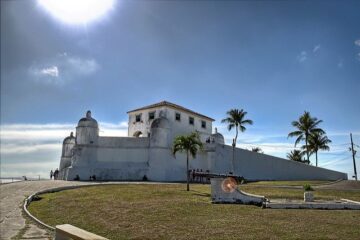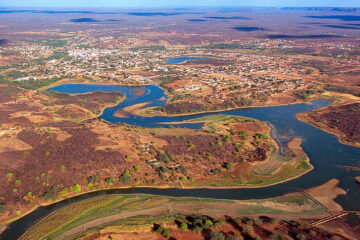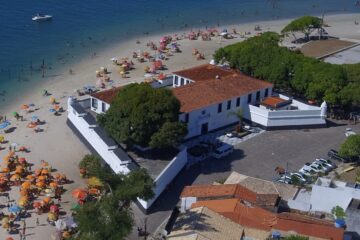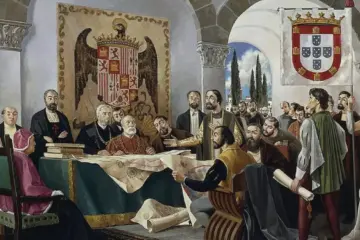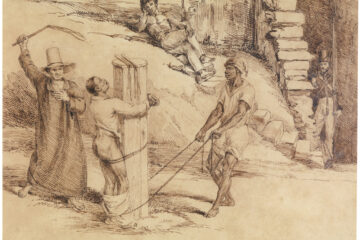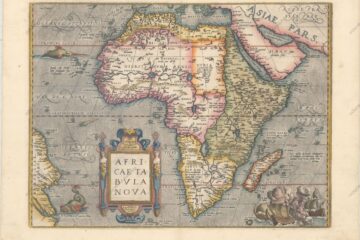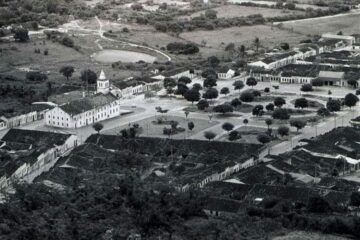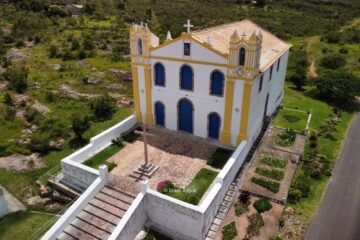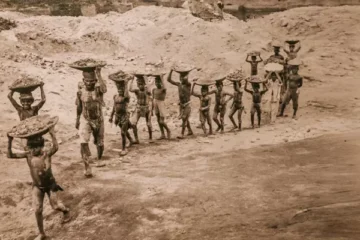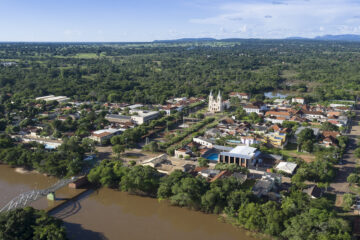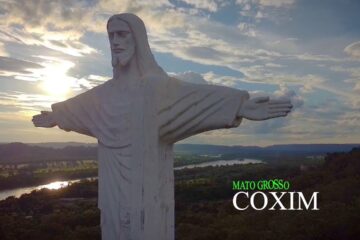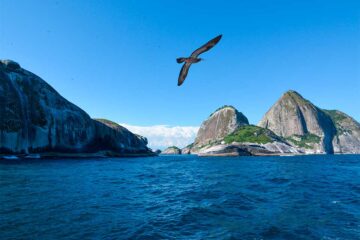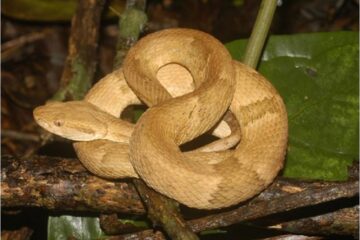The North Coast of Rio Grande do Norte is known for its strong winds, sunshine, dunes, beaches, cliffs and Potiguar friendliness that accompany visitors throughout the region.
This 8-day itinerary offers a complete immersion, allowing more time for contemplation and less time for travelling.
Videos about São Miguel do Gostoso, Dunas de Genipabu, Maracajaú, Maxaranguape, Porto de Galinas and Galinhos.


Dunas de Genipabu01:52

São Miguel do Gostoso - Drone

Maracajau e Maxaranguape - Drone05:59

Porto de Galinhas - Drone

Porto de Galinhas - Drone
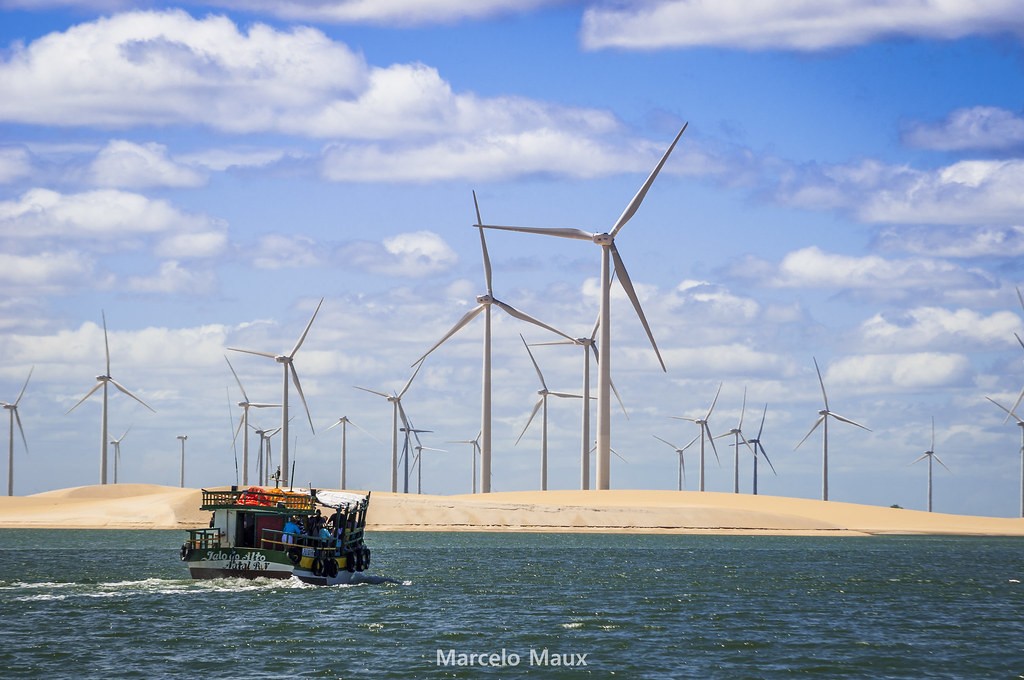
Galinhos RN - Guia de Viagem02:14
Map of the North Coast of Rio Grande do Norte
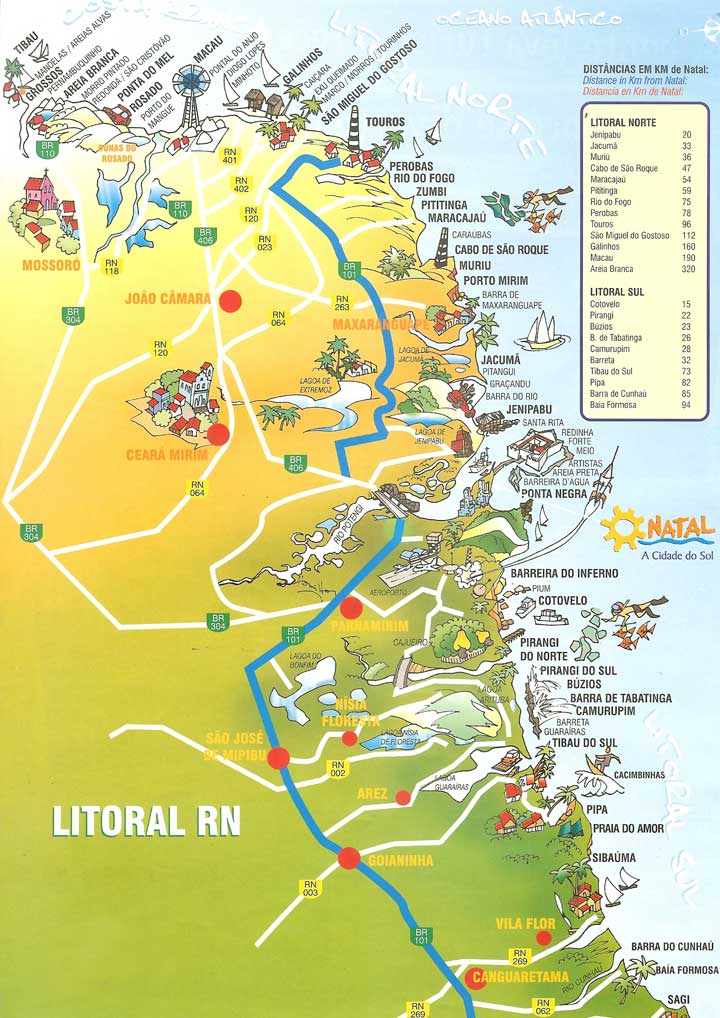
8 Days North Coast of Rio Grande do Norte Itinerary
The North Coast of Rio Grande do Norte offers a variety of attractions and activities that combine adventure, relaxation and contact with nature, making it an essential destination for anyone visiting the State.
- Day 1 – Genipabu
- Day 2 – Pitangui Lagoon, Jacumã Lagoon and Muriú Beach
- Day 3 – Maracajaú
- Day 4 – Touros
- Days 5 and 6 – São Miguel do Gostoso
- Days 7 and 8 – Galinhos and Galos
Day 1 – Genipabu
A visit to Genipabu is a classic, a thrilling buggy ride through the dunes and beaches of the region.
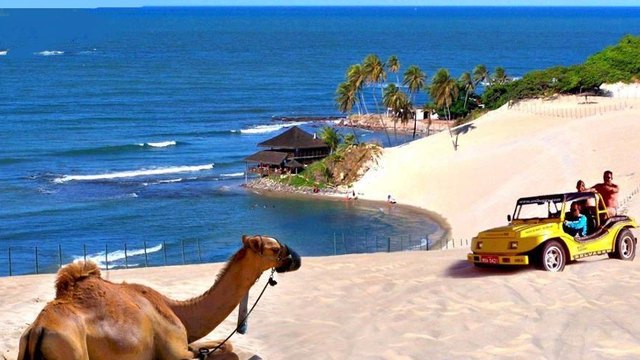
It can be an exhausting experience, but it promises to be a lot of fun. To get the most out of it, I suggest you split the trip into two days.
We started with the famous buggy ride in the Genipabu Dunes Park, where the constant action of the wind shapes the dunes and makes them mobile.
The adrenaline rush begins with the question from the buggy driver: “So, guys, thrills or no thrills? Those who opt for thrills will experience remarkable moments of radical manoeuvres.
Soon after, we find the dromedaries in the dunes, where a 15-minute ride is an attraction in itself.
Lunch is almost obligatory at the Bar 21, famous for its fish and shrimp recipes and panoramic views.
Spend the afternoon relaxing on the urbanised beach of Genipabu.
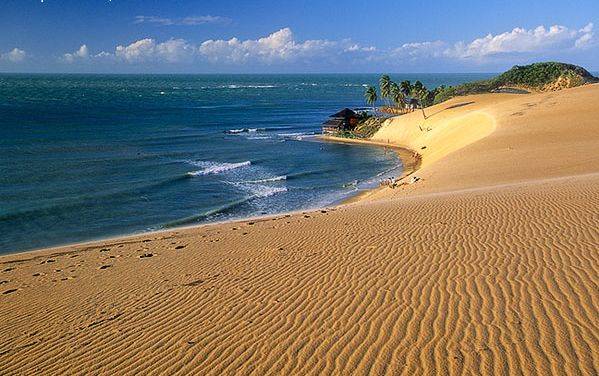
Day 2 – Pitangui Lagoon, Jacumã Lagoon and Muriú Beach
The second day is less busy. I recommend hiring a buggy, but it’s also possible to explore in your own car. A rowing ferry across the Ceará-Mirim River takes you to Graçandu beach, which isn’t the most impressive.
Pitangui Lagoon
Our first stop is the Pitangui Lagoon, a perfect place to relax in the shade of plastic chairs. Kayaks are available for a trip around the lagoon.
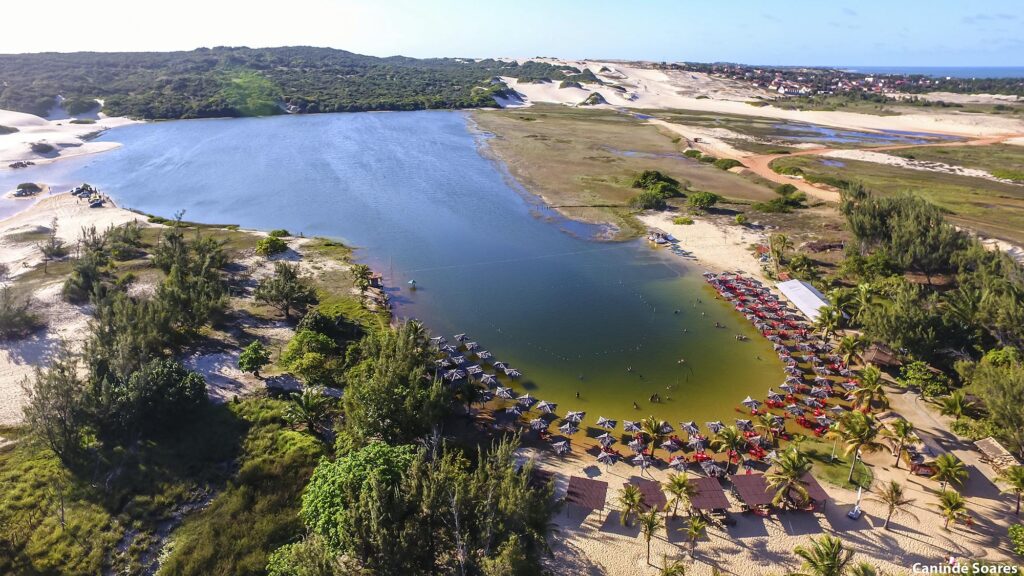
The road between Pitangui and Jacumã crosses an impressive chain of dunes reminiscent of the Sahara, where scenes from the soap opera O Clone were filmed.
Jacumã Lagoon
In contrast to the tranquillity of Pitangui, the Jacumã Lagoon is a destination for adventure lovers. Here you can try the esquibunda and the aerobunda, as well as the exciting kamizaze.
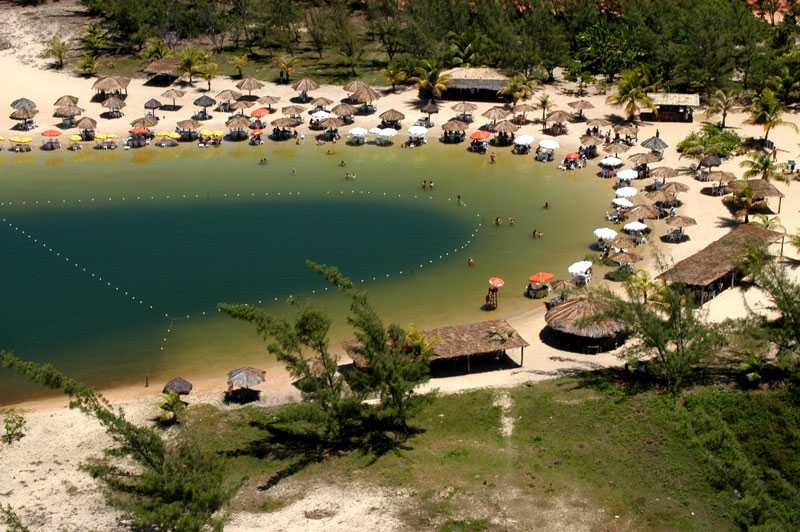
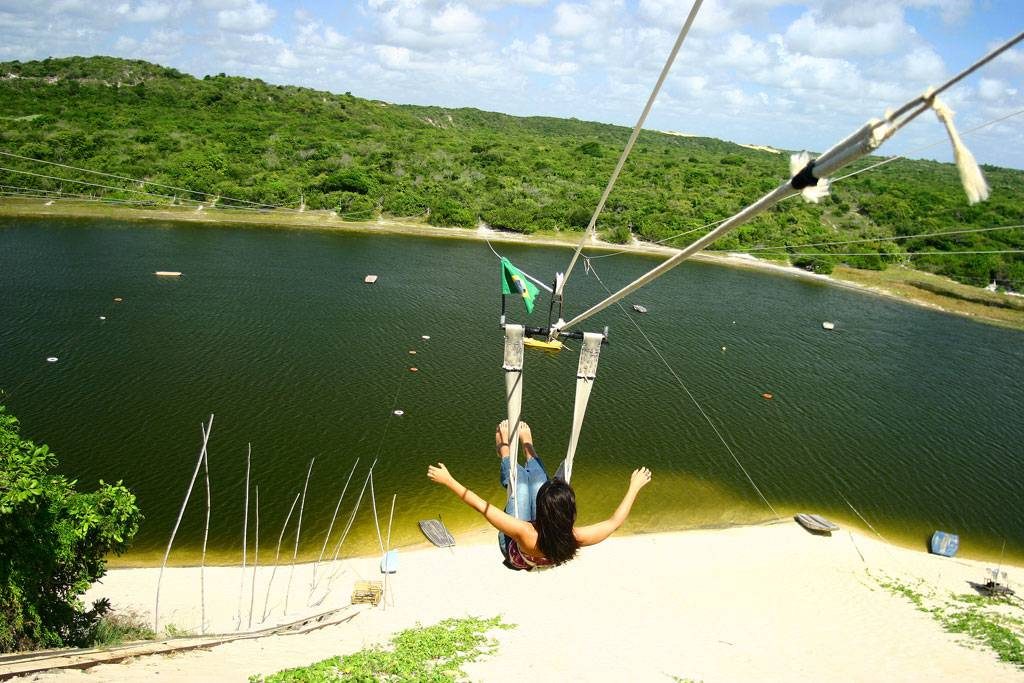
At the end of the day, a swim in the sea at Muriú Beach, with its natural pools 1 kilometre from the coast, is the perfect way to end the day.
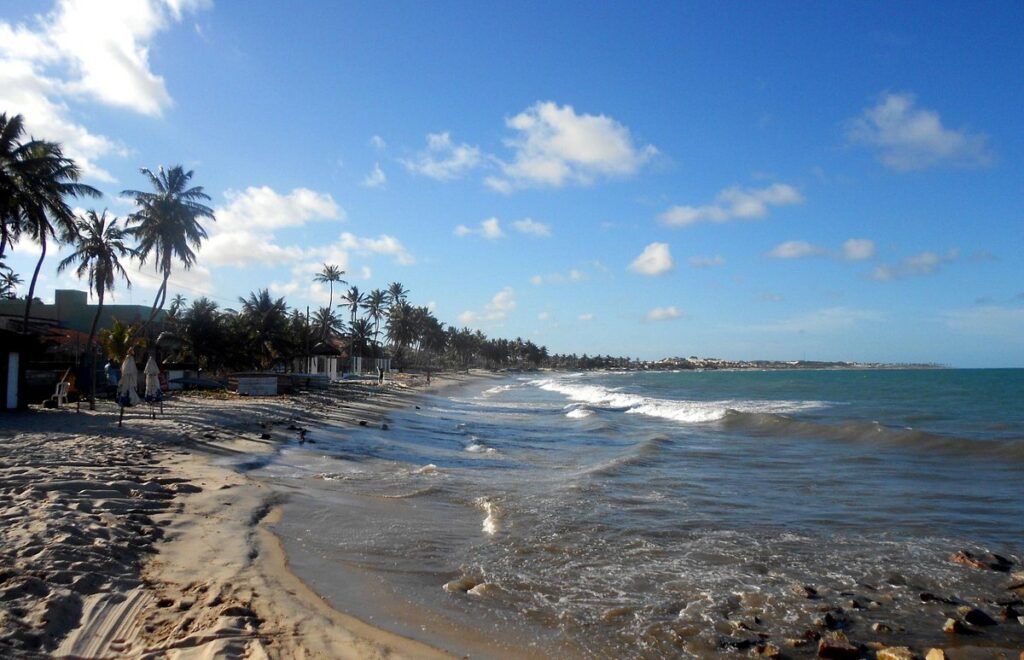
Day 3 – Maracajaú
Maracajaú is one of the most popular destinations for tourists travelling back and forth from Natal.
Famous for its parrachos (reefs) 7 kilometres off the coast, it is an ideal place for snorkelling and taking incredible photos with the fish.
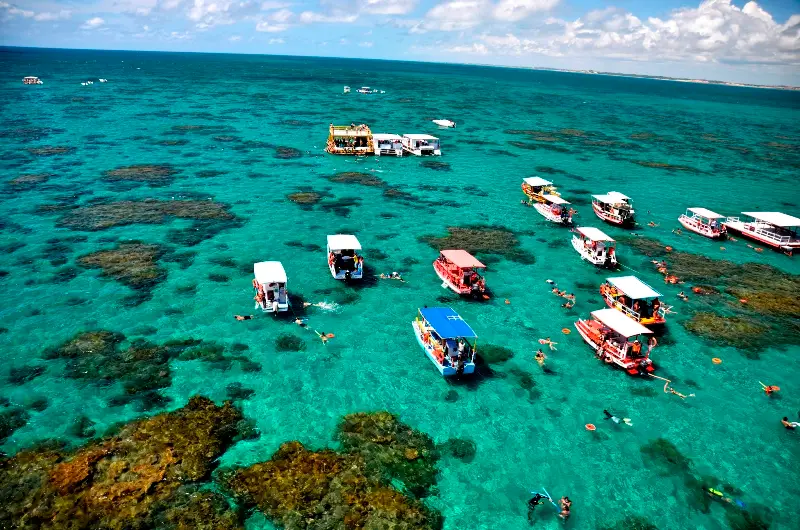
The natural pools have an average depth of 1.5 metres, which may not be ideal for children or non-swimmers.
However, Maracajaú offers other attractions such as the beauty of the dunes and coconut palms, as well as the Manoa water park, which is guaranteed to be fun for the whole family.

A few kilometres away, in Maxaranguape, the curious Tree of Love and Cabo de São Roque, the closest point to the African continent, are obligatory stops.
Day 4 – Touros
Touros is a crucial point on the map of Brazil. Known as the Elbow of Brazil, it is where the coastline changes direction.
The Calcanhar lighthouse, one of the largest in the world at 62 metres high, is unfortunately closed to visitors.

The central beach of Touros has a good infrastructure, but the strong sea is not for everyone. Perobas Beach offers crystal clear waters, ideal for relaxing.
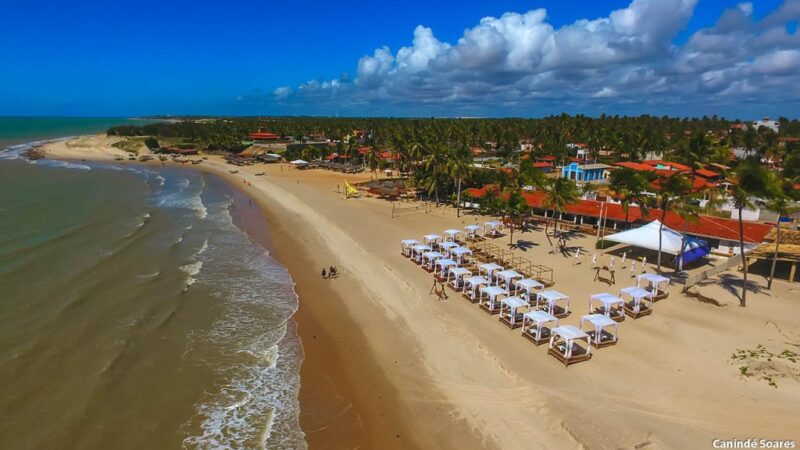
Days 5 and 6 – São Miguel do Gostoso
São Miguel do Gostoso, formerly a district of Touros, was given its name in 2000 after a plebiscite. In recent years it has become a hotspot for kite surfers and windsurfers due to its strong winds.
Allow two days to enjoy the beaches. Ponta do Santo Cristo is the busiest, with a blue sea and moderate waves. The central beaches, such as Cardeiro and Xêpa, offer kiosks and a quieter atmosphere.
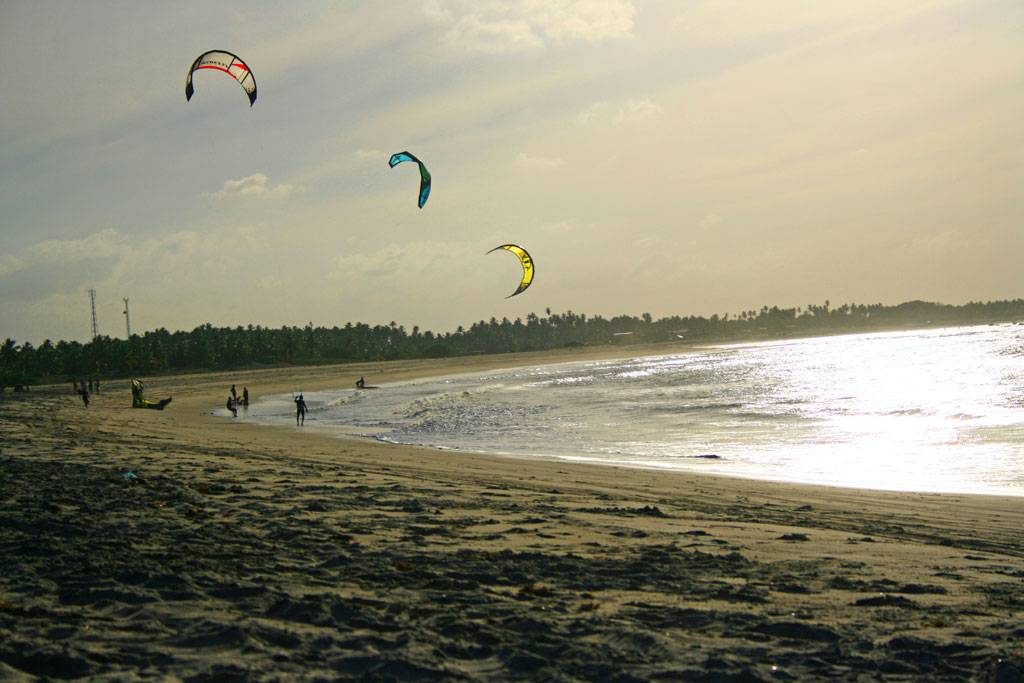
At night, the Avenida dos Arrecifes is the perfect place to meet the locals, who are known for their friendliness.
Tourinhos Beach
On day six, don’t miss Praia de Tourinhos, a less crowded gem with petrified dunes and the Whale’s Sigh. Access by track or buggy is recommended.
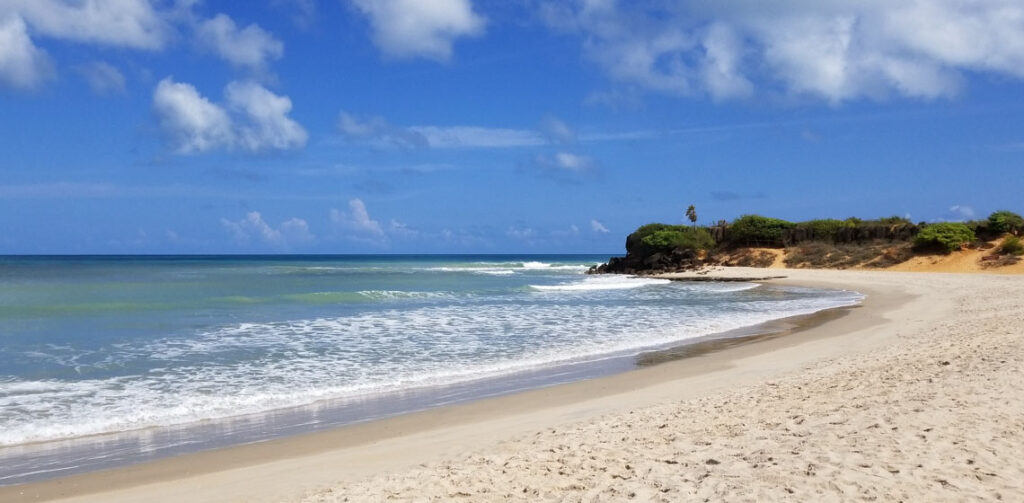
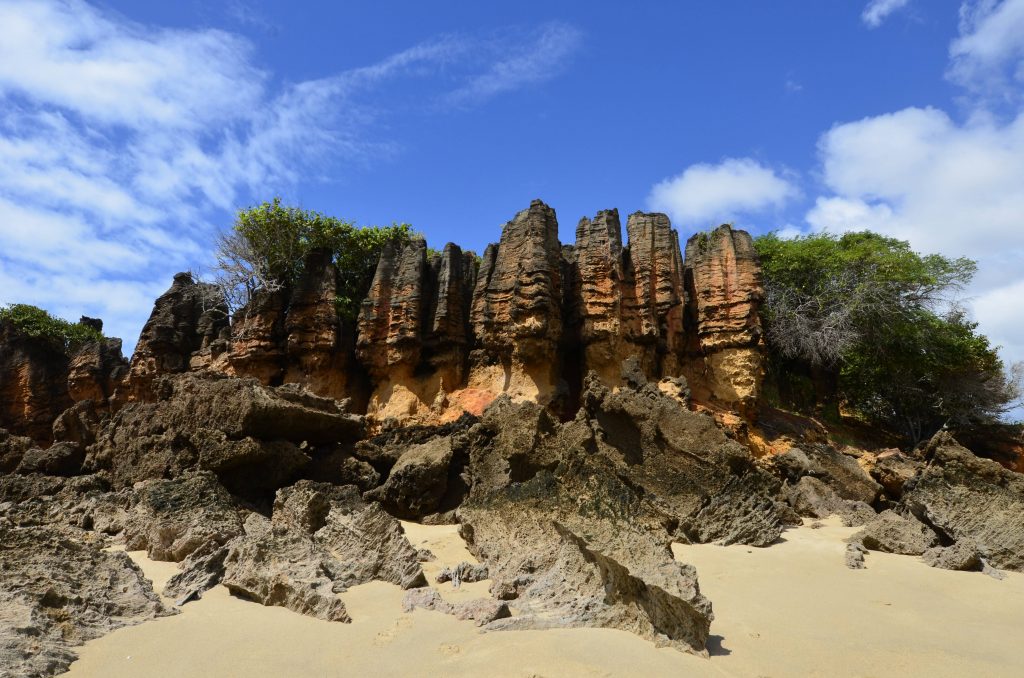
Days 7 and 8 – Galinhos and Galos
Galinhos and Galos are among the most charming places on the north coast of RN.
Galinhos is a small town on the north coast of RN, while Galos is even smaller. Both have a quiet and authentic atmosphere.
Accessible only by buggy or 4×4, these villages offer a peaceful and authentic atmosphere.
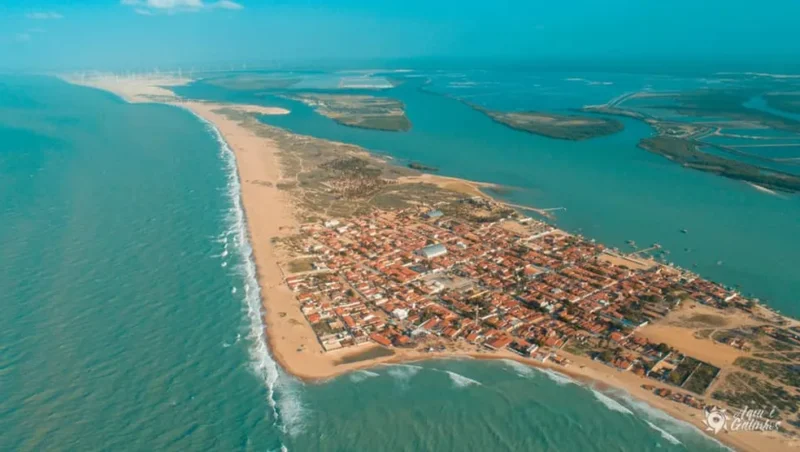
Galinhos, with a population of around 1,000, is the perfect place to watch an unforgettable sunset. The even smaller village of Galos can be reached on foot or by carriage-taxi.

Rio Grande do Norte is Brazil’s largest salt producer and the region’s salt flats are well worth a visit. A boat trip through the natural beauty of the region, including the Duna do Capim, is an experience not to be missed.
Bottom Line
This tour of the North Coast of RN offers an experience rich in nature, adventure and local culture. Get ready to explore and be enchanted at every stop in this incredible destination.
North Coast of Rio Grande do Norte Itinerary
This post is also on:
![]() Português
Português ![]() English
English ![]() Deutsch
Deutsch ![]() Español
Español ![]() Français
Français


